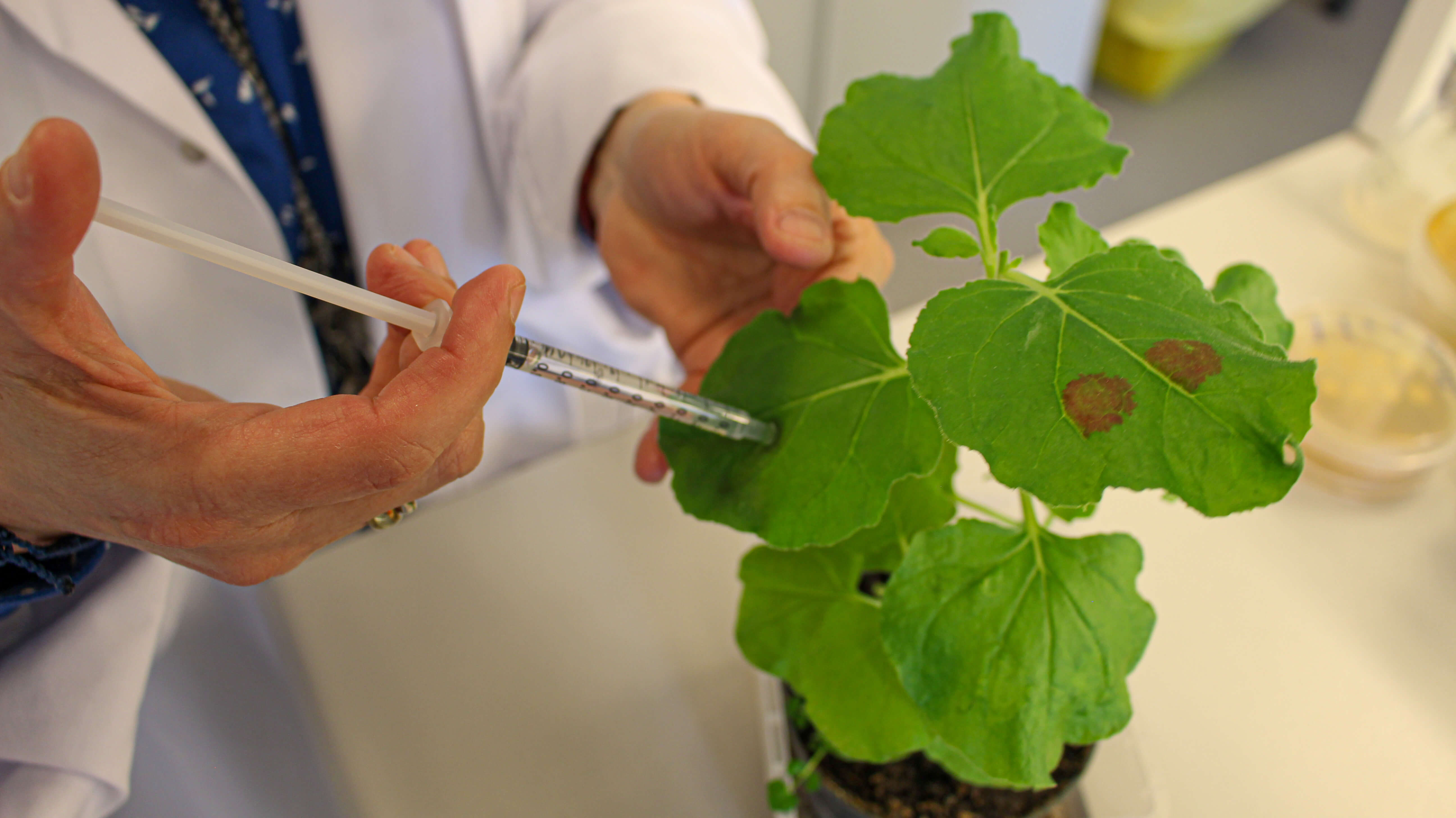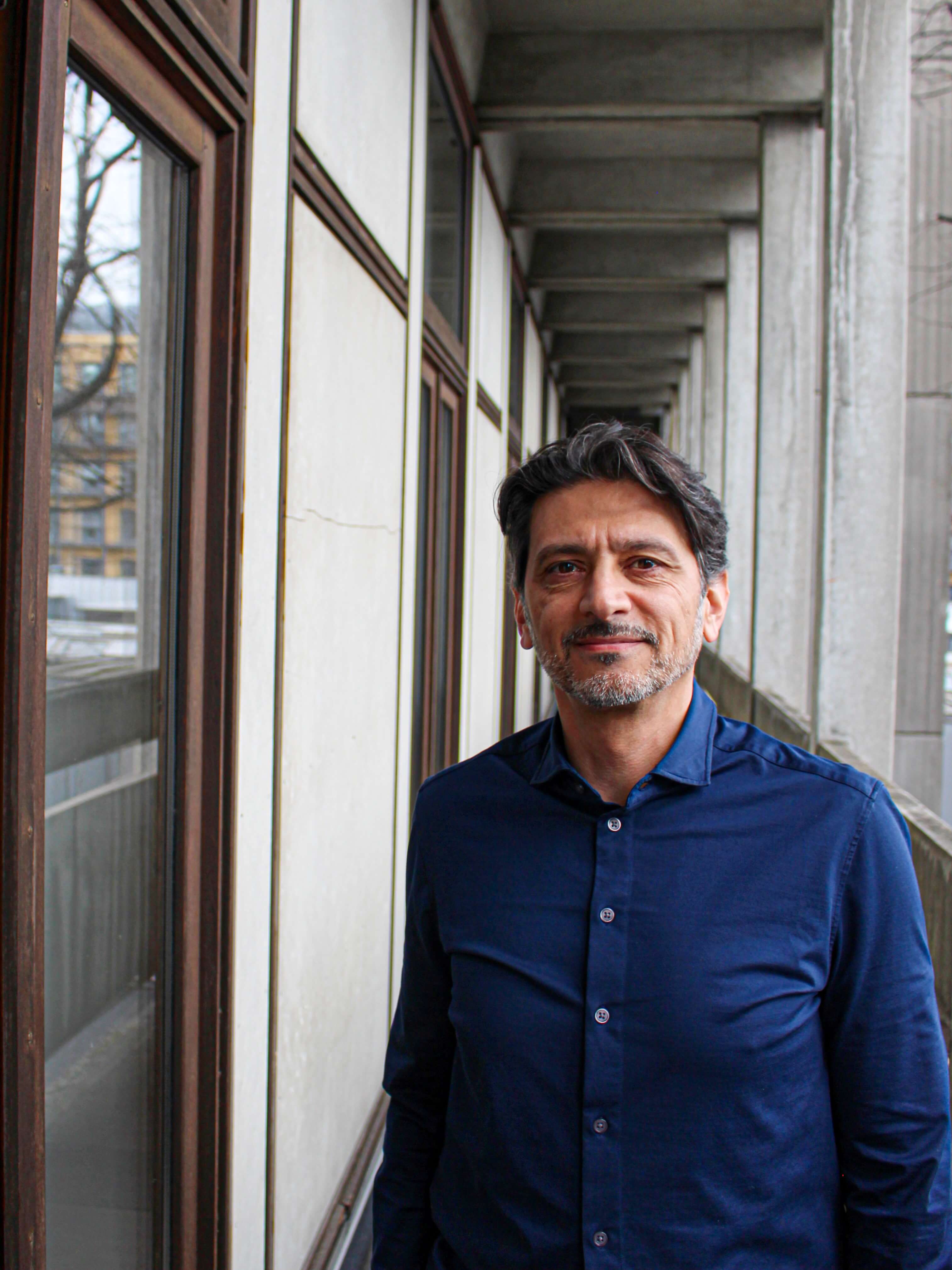Biochemical Engineering

Focusing on natural products - the complex molecules used as pharmaceuticals, flavors, or colorants - we engineer microorganisms for the production of high-value compounds.
By applying synthetic biology principles, we develop versatile production platforms that can accept exchangeable module-specific parts to reproduce, and potentially expand, the chemical diversity found in nature.
Our interdisciplinary research spans a wide range of activities, from the identification of the biosynthetic pathways, to the engineering of the parts involved, and the optimization of the “chassis”.
Four main research themes run across and unify our current research projects. These are:
1. Chemical diversity. We are exploring the modular structure and efficient production capabilities of our platforms to recreate and expand the diversity of chemical compounds found in nature. In this effort, we are focusing on three different areas: 1. The efficient production of valuable compounds in scale that enables industrial production, 2. The elucidation of biosynthetic pathways for specialized metabolites, primarily those with potent bioactivities, and 3. The development of methods for the synthesis and characterization of new-to-nature compounds to expand the chemical palette of nature.
2. Modularity and compartmentalization. We are addressing the concept of modularity in synthetic biosystems at different levels: pathway, organellar, and organismal. In this process, we are developing concepts and tools for the modular reconstruction of pathways, the conversion of specific subcellular structures into dedicated modular micro-factories, and the engineering of synthetic symbiotic systems.
3. Sensing. We are developing sensitive and versatile biosensors for the detection of extracellular or intracellular metabolites, with application in the regulation of pathway fluxes, the establishment of high-throughput assays for optimizing the function of enzymes or cell factories, and the broader detection of molecules with environmental or medical significance in vivo or in vitro.
4. Evolving. We are pioneering the development of novel tools for establishing continuous mutagenesis-based in vivo directed evolution. We apply these tools in the optimization of enzymes and cell factories and in the construction of de novo metabolic pathways.
Current research projects include:
- Biotechnological production of structurally complex plant high-value compounds (Supported by the Novo Nordisk Foundation Research Leader program by an Ascending Investigator award to Sotirios Kampranis).
- Elucidating the biosynthesis of the anti-cancer agent Taxol. (Supported by DFF-FTP)
- Engineering yeast membranes for improved bioproduction (In collaboration with Thomas Gunther Pomorski - supported by the Novo Nordisk Foundation).
- Establishing a yeast cell factory for high-value triterpenoids (In collaboration with Soren Bak - supported by the Danish Foundation for Independent Research (DFF-FTP) and the Novo Nordisk Foundation)
- From pre-history to the future: exploring the biosynthetic potential of Ginkgo biloba (In collaboration with Irini Pateraki - Supported by DFF-FTP).
- Establishing intracellular and extracellular biosensors for the monitoring and regulation of pathway function (Supported by the European Commission – H2020 program).
- A synthetic biology approach for the exploitation of marine natural products as pharmaceuticals or biofuels (Supported by the European Commission – H2020 program).
- Animal-free antibodies - Reshaping biological research by recapitulating the natural process of antibody generation in yeast (Supported by the Villum Foundation).
Training opportunities for M.Sc. and B.Sc. students on these topics are currently available (contact: soka@plen.ku.dk).
- Simon Dusséaux, William Thomas Wajn, Yixuan Liu, Codruta Ignea, Sotirios C. Kampranis (2020). Transforming yeast peroxisomes into microfactories for the efficient production of high-value isoprenoids. Proceedings of the National Academy of Sciences (PNAS), 117 (50) 31789-31799; DOI: 10.1073/pnas.2013968117.
● In this work we describe how we have converted yeast peroxisomes as synthetic biology devices that can be used for the modular assembly and optimization of complex pathways, adding an extra level of hierarchical abstraction in the systematic engineering of cell factories. - Ignea, C., Raadam, M. H., Motawia, M. S., Makris, A. M., Vickers, C. E. & Kampranis, S. C.* (2019) Orthogonal monoterpenoid biosynthesis in yeast constructed on an isomeric substrate. Nature Communications, 10, 3799, doi.org/10.1038/s41467-019-11290.
● This paper provides the technological basis for the production of monoterpenoids and establishes a dynamic control system that can be applied for improving production of numerous compounds from different terpenoid classes. - Ignea, C., Pontini, M., Motawia, M. S., Maffei, M. E., Makris, A. M. & Kampranis, S. C.* (2018) Synthesis of 11-carbon terpenoids in yeast using protein and metabolic engineering, Nature Chemical Biology, 14, 1090-98.
● To expand the diversity of terpenoid structures, we engineered yeast cells to synthesize a non-canonical building block with 11 carbons and produced 40 C11 terpene scaffolds that can form the basis for an entire terpenoid class. By identifying a single-residue switch that converts C10 plant monoterpene synthases to C11-specific enzymes, we engineered dedicated synthases for C11 terpene production. - Athanasakoglou, A., Grypioti, E., Michailidou, S., Ignea, C., Makris, A. M., Kalantidis, K., Massé, G., Argiriou, A., Verret, F., Kampranis, S. C.* (2019) Isoprenoid biosynthesis in the diatom Haslea ostrearia. New Phytologist, 222, 230-243.
● This paper demonstrates our ability to identify and characterize diverse enzymes involved in terpene biosynthesis so that they can be used for the production of high-value molecules. - Ignea, C., Athanasakoglou, A., Trikka, F. A, Ioannou, E., Georgantea, P., Loupassaki, S., Roussis, V., Makris, A. M. & Kampranis, S. C.* (2016) Carnosic acid biosynthesis elucidated by a Synthetic Biology platform, Proceedings of the National Academy of Sciences (PNAS) 113, 3681–3686.
● In addition to revealing an important plant natural product biosynthetic pathway, this work highlights the usefulness of synthetic biology approaches in plant biochemistry and develops yeast as a tool to exploit the wealth of next-generation sequencing data that is continuously being produced through transcriptomic, genomic, or metagenomic studies.
Scientific highlights:
Our research has been highlighted in the following articles:
- Article in Sciencenews.dk: “Researchers will turn rose-fragranced yeast into a major industry” - https://sciencenews.dk/en/researchers-will-turn-rose-fragranced-yeast-into-a-major-industry
- Zhou Y. J. Expanding the terpenoid kingdom. Nature Chem. Biol. 14(12):1069-70. - https://www.nature.com/articles/s41589-018-0167-4
- Article in Ingenioren magazine: “Biokemisk gennembrud kan føre til nye dufte, smagsstoffer og medicin”- https://ing.dk/artikel/biokemisk-gennembrud-kan-foere-nye-dufte-smagsstoffer-medicin-222573
- Article in Sciencenews.dk: “Researchers-have-finally-gotten-yeast-to-produce-menthol” - https://www.sciencenews.dk/en/researchers-have-finally-gotten-yeast-to-produce-menthol
Group members
| Name | Title | Phone | |
|---|---|---|---|
| Feiyan Liang | Assistant Professor | +4535332945 | |
| Irini Pateraki | Special Consultant | +4535331103 |
Master students
- Ting Tao
- Keyan Liu
- Yixuan Liu
- Jonas Boriths Hansen
- Iben Nikolajsen
- Nicklas Brendborg
- Christoffer Bekke
- Nikolaj Strande Henriksen
- Oskar Oloffson
- Daniel Jacobsen Vargas
- Hans Adam Bøgh Marstrand-Jørgensen

